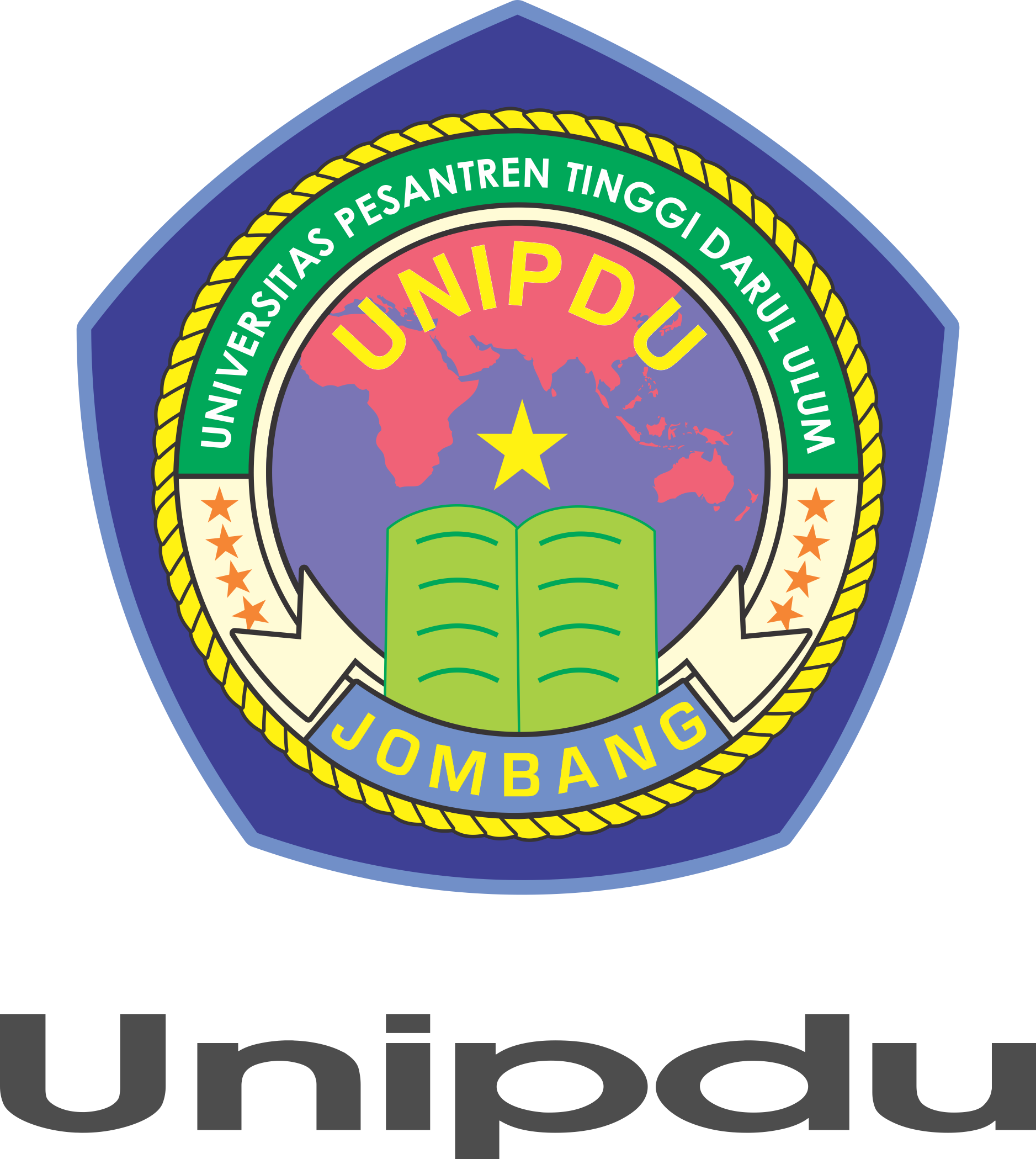Students’ Misconceptions in Simplifying Algebraic Expressions Based on Assimilation and Accommodation Frameworks
DOI:
https://doi.org/10.26594/jmpm.v9i2.5172Abstract
This study adopts a qualitative approach with a descriptive research design. The subjects of this study consist of six students from class X of a high school during the second semester of the 2023/2024 school year. The data analysis process includes three stages: data reduction, data presentation, and drawing conclusions. The validity of the findings was ensured through triangulation, which involved comparing data from students' work, interview results, and observation results. The findings revealed that students exhibited seven types of misconceptions leading to errors in simplifying algebraic expressions: (1) conjunction error, (2) exponent error, (3) reversal error, (4) difficulties with variables, (5) substitution error, (6) equation formation errors, and (7) a commutative-like terms error. These misconceptions were attributed to inappropriate assimilation and a lack of accommodation.
References
Abbas, M. L. H. (2019). Identifikasi miskonsepsi mahasiswa tadris fisika menggunakan four tier diagnostic test pada mata kuliah kalkulus ii. JMPM: Jurnal Matematika Dan Pendidikan Matematika, 4(1), 7–16. https://doi.org/10.26594/jmpm.v4i1.1487.
AL-Rababaha, Y., Yew, W. T., & Meng, C. C. (2022). Algebra misconceptions among tenth graders in the United Arab Emirates. International Journal of Academic Research in Progressive Education and Development, 11(1), 594–608. https://doi.org/10.6007/IJARPED/v11-i1/12197.
Chan, J. Y. C., Ottmar, E. R., Smith, H., & Closser, A. H. (2022). Variables versus numbers: Effects of symbols and algebraic knowledge on students’ problem-solving strategies. Contemporary Educational Psychology, 71(October), 102114. https://doi.org/10.1016/j.cedpsych.2022.102114.
Dinnullah, R. N. I., Noni, E., & Sumadji, S. (2019). Analisis kesalahan siswa pada penyelesaian soal cerita berdasarkan tahapan newman. Jurnal Tadris Matematika, 2(2), 175–184. https://doi.org/10.21274/jtm.2019.2.2.175-184.
Faizah, S., Nusantara, T., & Rahardi, R. (2022). Constructing students’ thinking process through assimilation and accommodation framework. Mathematics Teaching Research Journal, 14(1).
Hakim, A. R., Supratman, S., & Madawistama, S. T. (2022). Proses berpikir representasi matematis siswa berdasarkan tipe kepribadian guardian dan rasional. Prisma, 11(1), 193-202. https://doi.org/10.35194/jp.v11i1.2150.
Hanfstingl, B., Arzenšek, A., Apschner, J., & Gölly, K. I. (2021). Assimilation and Accommodation: a systematic review of the last two decades. European Psychologist, 27(4), 320-337. https://doi.org/10.1027/1016-9040/a000463.
Herscovics, N., & Linchevscki, L. (1994). A cognitive gap between arithmetic and algebra. Educational Studies, 27, 59–78. https://doi.org/10.1007/BF01284528.
Huda, N., Sutawidjaja, A., Subanji, S., & Rahardjo, S. (2018). The errors of metacognitive evaluation on metacognitive failure of students in mathematical problem solving. Journal of Physics: Conference Series, 1008 (2018) 012073. https://doi.org/10.1088/1742-6596/1008/1/012073.
Im, S. H., & Jitendra, A. K. (2020). Analysis of proportional reasoning and misconceptions among students with mathematical learning disabilities. Journal of Mathematical Behavior, 57(March 2020). https://doi.org/10.1016/j.jmathb.2019.100753.
Khofifah, L., Supriadi, N., & Syazali, M. (2021). Model flipped classroom dan discovery learning terhadap kemampuan pemahaman konsep dan pemecahan masalah matematis. Prisma, 10(1), 17-29. https://doi.org/10.35194/jp.v10i1.1098.
Khusna, A. H., & Rosyadi, A. A. P. (2021). Karakteristik miskonsepsi mahasiswa pada konsep himpunan ditinjau dari kemampuannya dalam mengkonsruksi bukti matematis. AKSIOMA: Jurnal Program Studi Pendidikan Matematika, 10(3), 1422-1431. https://doi.org/10.24127/ajpm.v10i3.3735.
Lestari, E. P., & Fiangga, S. (2021). Analisis kesalahan siswa dalam menyelesaikan soal cerita pecahan berdasarkan jenis kelamin ditinjau dari teori newman. Jurnal Tadris Matematika, 4(2), 187–200. https://doi.org/10.21274/jtm.2021.4.2.187-200
Maharani, I. P., Sisworo, S., & Permadi, H. (2019). Deskripsi kesalahan siswa dan scaffoldingnya dalam menyederhanakan pecahan bentuk aljabar. Jurnal Pendidikan: Teori, Penelitian, Dan Pengembangan, 4(12), 1672-1682. https://doi.org/10.17977/jptpp.v4i12.13089.
Marpa, E. P. (2019). Common errors in algebraic expressions: A quantitative-qualitative analysis. International Journal on Social and Education Sciences, 1(2), 63–72. https://doi.org/10.46328/ijonses.11.
Moru, E. K., & Mathunya, M. (2022). A constructivist analysis of grade 8 learners’ errors and misconceptions in simplifying mathematical algebraic expressions. JRAMathEdu (Journal of Research and Advances in Mathematics Education), 7(3), 130–144. https://doi.org/10.23917/jramathedu.v7i3.16784.
Namkung, J. M., & Bricko, N. (2021). The effects of algebraic equation solving intervention for students with mathematics learning difficulties. Journal of Learning Disabilities, 54(2), 111–123. https://doi.org/10.1177/0022219420930814.
Netti, S., Nusantara, T., & Anwar, L. (2016). The failure to construct proof based on assimilation and accommodation framework from piaget. International Education Studies. 9(12), 12–22. https://doi.org/10.5539/ies.v9n12p12.
Nurussama, A., & Hermanto, H. (2022). Analisis miskonsepsi siswa pada materi pecahan ditinjau dari teori konstruktivisme. AKSIOMA: Jurnal Program Studi Pendidikan Matematika, 11(1), 641-653. https://doi.org/10.24127/ajpm.v11i1.4697.
Nurwahida, N., & Munir, N. P. (2022). Analisis miskonsepsi calon guru sekolah dasar pada matakuliah konsep dasar matematika dengan menggunakan three-tier diagnostic test dilengkapi certainty of response index. JUDIKDAS: Jurnal Ilmu Pendidikan Dasar Indonesia, 1(3), 153–164. https://doi.org/10.51574/judikdas.v1i3.455.
Osei, W., & Agyei, D. D. (2024). Analyses of algebra knowledge and difficulties among Ghanaian Junior High School learners: Insights from standard-based mathematics curriculum implementation. Social Sciences and Humanities Open, 10(2024), 101019. https://doi.org/10.1016/j.ssaho.2024.101019.
Saaroh, F., Abdul Aziz, T., & Antari Wijayanti, D. (2021). Analysis of students’ misconceptions on solving algebraic contextual problem. Risenologi, 6(1), 19–30. https://doi.org/10.47028/j.risenologi.2021.61.165.
Sari, H. M., & Afriansyah, E. A. (2020). Analisis miskonsepsi siswa smp pada materi operasi hitung bentuk aljabar. Mosharafa: Jurnal Pendidikan Matematika, 9(3), 439–450. https://doi.org/10.31980/mosharafa.v9i3.626.
Septian, A., & Soeleman, M. (2022). Asosiasi kemandirian belajar dengan kemampuan representasi dan koneksi matematis pada kalkulus integral. Prisma, 11(1), 71-81. https://doi.org/10.35194/jp.v11i1.2074.
Thanheiser, E. (2023). What is the mathematics in mathematics education?. The Journal of Mathematical Behavior, 70(Juni 2023), 101033. https://doi.org/10.1016/j.jmathb.2023.101033.
Yi Wei, L. (2020). Using “paddy field” graphic organiser to enhance students’ ability in expanding and simplifying algebraic expressions. Southeast Asian Mathematics Education Journal, 10(2), 75–86.
Downloads
Published
Issue
Section
License
Copyright (c) 2024 JMPM: Jurnal Matematika dan Pendidikan Matematika

This work is licensed under a Creative Commons Attribution 4.0 International License.
The formal legal aspect of access to any information and articles contained in this journal website refers to the Creative Commons Attribution 4.0 International (CC BY 4.0) license terms.










